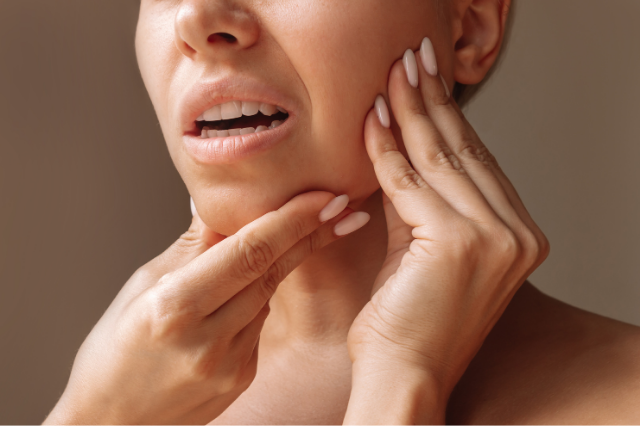Rethinking Oral Health
When we think of health, we rarely begin with the mouth. We might focus on the heart, the gut, or the immune system; but teeth and gums often sit in a separate category, cared for by a different set of practitioners and considered apart from the rest of the body. This divide has shaped the way most of us view dentistry: as maintenance for teeth, rather than as care that influences the entire system.
Yet oral health touches far more than the surface. The mouth is the entry point to digestion, the beginning of the airway, and a mirror of what is happening deeper within. Inflammation that starts in the gums can travel through the bloodstream. The balance of bacteria in the mouth can influence the gut. The way our jaw sits can affect posture, breathing, and even how well we sleep. When we separate dentistry from overall health, we miss these connections; and with them, opportunities for repair.
Holistic dentistry begins by bringing these pieces back together. Instead of focusing only on teeth, it looks at the entire person: how diet, stress, sleep, and systemic health all interact with the mouth, and how the mouth in turn shapes the body. This integrated perspective turns dental care into a foundation for resilience, linking oral wellbeing to energy, clarity, and long-term vitality.
Bridging Dentistry and Whole-Body Wellness
Dr. Yasaman S. Roland has spent over two decades redefining what dentistry can be. Through her work in comprehensive and integrative care, she has developed a deep understanding of how the mouth interacts with the entire body; especially the neck, spine, and nervous system. Her approach is rooted in the belief that the jaw is not separate from posture, breathing, or balance, but intimately connected to how we function and heal.

Whether addressing chronic tension, airway restriction, or unresolved oral symptoms, Dr. Roland approaches each case as part of a larger system. Her passion is helping people reconnect with their own biology by restoring function to the places where stress, strain, and dysfunction often begin; starting with the mouth, and radiating outward into the whole body.
The Mouth as a Gateway to the Body
For most of us, the mouth feels separate from the rest of the body. We see the dentist for cavities and cleanings, and we see doctors for everything else. Yet the mouth is the starting point of so many processes that shape health. It is where food first meets digestion, where breathing begins, and where bacteria form communities that influence the gut and beyond. When we think of the mouth as a gateway, rather than an isolated part, it becomes clear how much of the body’s resilience depends on oral balance.
Inflammation that Travels Beyond the Gums
Bleeding gums are often dismissed as a minor nuisance, something a better toothbrush or more flossing will fix. In reality, gum inflammation is a sign of an immune response that does not stay confined to the mouth. The blood vessels in our gums are direct entry points to the bloodstream, carrying inflammatory molecules throughout the body. Research has connected gum disease with conditions as wide-ranging as heart disease, diabetes, and Alzheimer’s. What begins as local irritation can ripple into the system, adding fuel to problems we might never trace back to oral health.
When we address gum health with this bigger picture in mind, the shift is powerful. Reducing inflammation in the mouth means reducing the burden on the entire immune system. It is one of the simplest ways to lower background stress in the body; not by adding new interventions, but by closing a doorway that keeps letting inflammation through.
The Microbiome that Begins in the Mouth
Most of us have heard about the gut microbiome and its role in immunity, metabolism, and mood. Less attention is paid to the fact that the microbiome begins in the mouth. Every bite of food and every swallow carries oral bacteria downward, seeding the gut with what lives above. If balance in the mouth tilts toward harmful strains, that imbalance is carried forward.
Holistic dentistry looks at oral hygiene not only as protection for teeth but as cultivation of a healthy microbial community. Choosing foods that feed beneficial bacteria, using natural rinses that do not wipe out the ecosystem, and addressing cavities as part of a larger balance all matter. When the oral microbiome is cared for, the gut is supported at the same time; and with it, immunity, digestion, and even mental health.
The Airway and Alignment
The structure of the jaw and the way the mouth develops shape more than our smile. They influence how well we breathe. Narrow arches, crowded teeth, or a jaw that sits too far back can all contribute to airway restriction. This can lead to snoring, sleep apnea, or shallow breathing patterns that strain the nervous system.

Holistic approaches to dentistry consider these structural issues part of whole-body care. Supporting proper jaw development in children, using orthodontics that expand rather than restrict, and addressing airway health in adults can improve sleep quality, oxygen flow, and even posture. What we often think of as a cosmetic issue is deeply tied to the way our body functions each day.
The Nervous System Connection
Every tooth, every gumline, and every joint of the jaw is wired into the nervous system. Signals from the oral cavity travel through cranial nerves that influence balance, digestion, breathing, and even how safe or stressed we feel. When something is off in the mouth; a chronic infection, a misaligned bite, or constant grinding; the nervous system registers it as ongoing strain. That strain radiates into the entire system, shaping how calm or reactive we feel day to day.
Chronic Stress Signals From the Mouth
An unresolved problem in the mouth can act like a low-grade alarm bell. A hidden infection under a filling, or clenching that tightens the jaw muscles every night, keeps the nervous system on alert. Over time, this baseline stress can exhaust our ability to regulate. We may find ourselves more reactive to pressure, less able to rest, or carrying tension that does not release. The source is often overlooked because we rarely connect dental issues to how frazzled we feel, yet the nervous system makes no distinction; stress is stress, wherever it originates.
When we relieve these sources of hidden strain, the shift is tangible. People often describe deeper sleep, calmer moods, and a sense of clarity returning. By easing the nervous system’s constant need to defend, oral care becomes nervous system care.
The Impact on Digestion and Immunity
The vagus nerve, one of the body’s main regulatory pathways, connects the mouth with the gut, lungs, and heart. Signals that begin in the oral cavity influence how easily we digest food, how well we fight infection, and how quickly we recover from stress. Chronic oral problems send distorted signals, keeping the body in a state of low-grade activation.
When oral health improves, vagal tone often improves alongside it. This means digestion steadies, immunity feels more robust, and the body finds it easier to return to balance after challenge. These are not abstract connections but lived experiences; meals that leave us lighter, colds that resolve more quickly, and stressful days that no longer spiral into exhaustion.
Breath, posture, and regulation
Jaw alignment also shapes the way we breathe and how our body carries itself. A narrow palate or a recessed jaw can restrict the airway, leading to shallow breaths that keep the nervous system in a constant state of alert. The body compensates with posture, tilting the head forward or tightening muscles to open the airway. Over time, this creates strain in the neck, shoulders, and back.

Correcting oral structure and supporting airway health helps restore both breathing and posture. The result is a nervous system that no longer feels like it is under siege. Breathing deepens, muscles loosen, and regulation becomes easier.
Reducing Toxic Load in Dentistry
For decades, dental care has relied on materials and methods that solved immediate problems but introduced hidden burdens. Mercury amalgam fillings, metal posts, and certain root canal techniques may have preserved teeth in the short term, yet they also carried risks of toxicity, chronic inflammation, or lingering infection. These issues often remain silent until they accumulate into strain the body can no longer ignore.
Holistic dentistry takes a different approach. It asks how every material placed in the mouth will interact with the rest of the system. Biocompatibility becomes a central question: will this material support health, or will it introduce stress? Mercury is replaced with safer composites. Infections that hide beneath root canals are treated with care for the immune system as a whole. Every choice becomes an opportunity to lighten the toxic load and reduce the background pressure the body must carry.
When we look at dentistry through this wider lens, it becomes part of detoxification. Removing metals or infected tissue carefully, supporting the body’s natural elimination pathways, and choosing restorative methods that do not add new strain all contribute to systemic healing. The result is not just a healthier mouth, but a body that feels less encumbered; with more energy available for growth, repair, and presence in daily life.
Building Health Through Everyday Choices
Holistic dentistry extends far beyond the dental chair. It recognises that what we eat, how we manage stress, and the rhythms of our daily life all shape the environment in the mouth. Cavities, gum disease, and structural problems do not appear in isolation. They grow from patterns that touch every part of our health. By focusing on prevention and alignment with the body’s natural needs, we can protect oral health while strengthening the system as a whole.
Nutrition as the Foundation
Every meal we eat is a message to our teeth and gums. Diets heavy in sugar and processed food feed bacteria that erode enamel and inflame tissues. In contrast, nutrient-rich foods; vegetables, fruits, healthy fats, and minerals like calcium and magnesium; provide what the mouth needs to repair and stay resilient. Vitamins A, D, and K2 also play an essential role in strengthening enamel and supporting bone health.

When we choose whole, nourishing foods, we are not just protecting teeth; we are reinforcing a foundation for long-term wellbeing. People often notice fewer cravings, steadier energy, and more satisfaction with meals when nutrition supports both the mouth and the rest of the body. Oral health becomes one more reason to eat in a way that feeds us deeply.
Stress and the Way We Hold Tension
Stress shapes the mouth as much as diet does. Many of us clench or grind our teeth without realising it, often during sleep or times of pressure. Over time, this creates wear on enamel, pain in the jaw, and even headaches or neck strain. Stress also alters the balance of bacteria in the mouth, increasing the risk of inflammation.
When we bring in practices that calm the nervous system; meditation, breathwork, movement, or even mindful breaks during the day; the mouth responds. Tension softens, jaw pain lessens, and the tendency to clench decreases. By caring for stress, we create space for oral structures to rest and recover, just as much as the mind and body benefit.
Prevention as a Daily Rhythm
Prevention in holistic dentistry is not limited to brushing and flossing, though those remain important. It also includes paying attention to posture, airway health, and the alignment of the jaw. Small adjustments, like choosing natural products that protect the microbiome or staying hydrated to support saliva production, make a difference over time.
These daily rhythms accumulate into resilience. Instead of waiting for problems to arise and then seeking treatment, prevention keeps the system strong and responsive. The reward is not only fewer dental procedures but also a body that functions with greater ease because the mouth is cared for as part of the whole.
THE TAKEAWAY
Rethinking oral health asks us to shift perspective. Instead of seeing dentistry as separate from the rest of medicine, we begin to see the mouth as part of a living system where every choice and every structure has ripple effects. This perspective is not only about avoiding disease; it is about creating a foundation for energy, resilience, and presence that carries into every corner of our life.
One way to begin is to treat oral care as more than a checklist. When we brush, floss, or sit in the dentist’s chair, we can also ask: how does my sleep affect this, how does my stress shape this, how does the food I choose contribute to what I see here? These questions turn routine maintenance into a practice of awareness. Over time, awareness changes habits, and habits shape health in ways that no single intervention ever could.
What emerges is a more integrated rhythm of living. Oral care becomes one with nutrition, posture, breathing, and stress recovery. Each choice supports the next, creating a feedback loop of health that is felt in sharper focus, calmer digestion, stronger immunity, and deeper rest. When we embrace oral health as whole-body health, the benefits extend far beyond a brighter smile…


